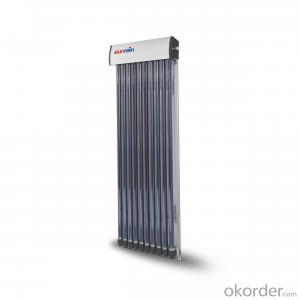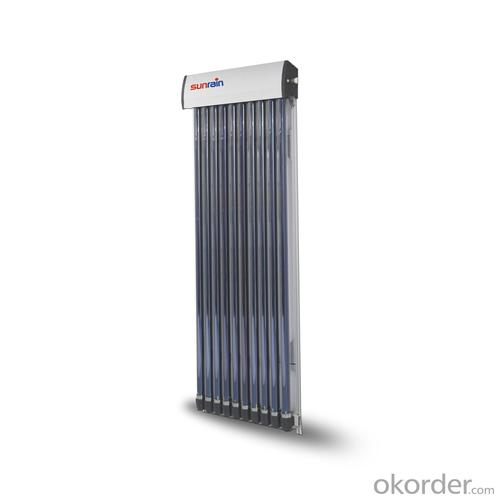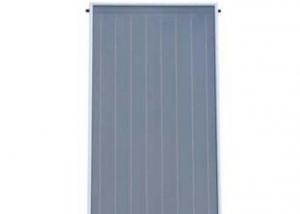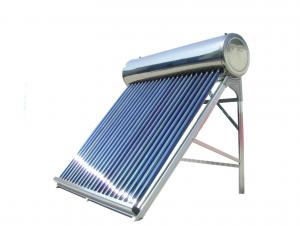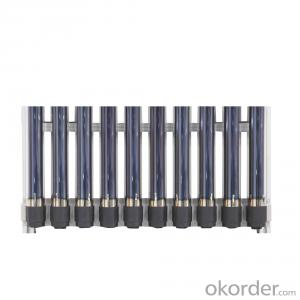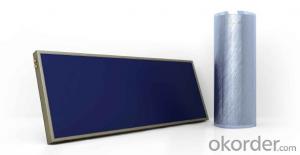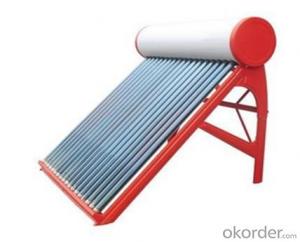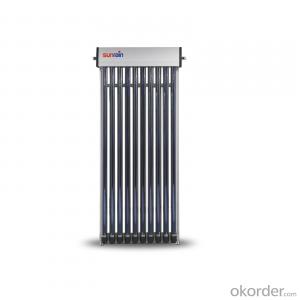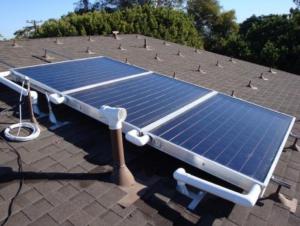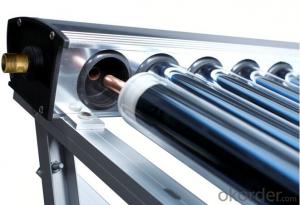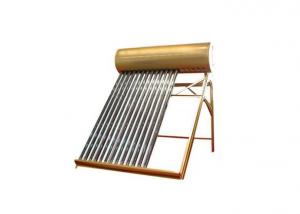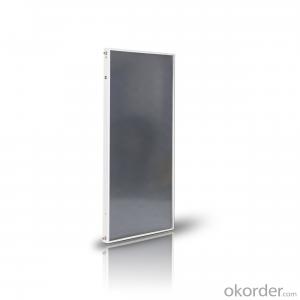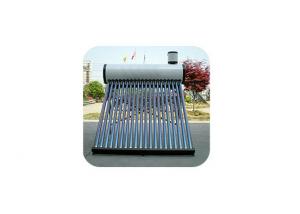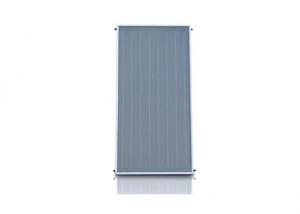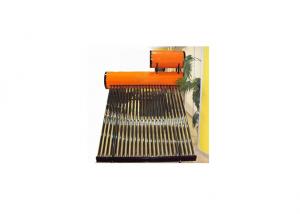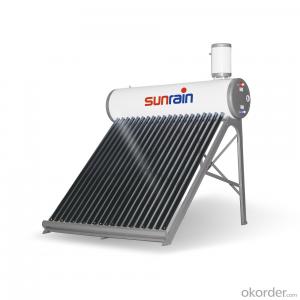Heat Pipe Collector R2 Solar Water Heater for Bird Bath
- Loading Port:
- China Main Port
- Payment Terms:
- TT OR LC
- Min Order Qty:
- -
- Supply Capability:
- -
OKorder Service Pledge
OKorder Financial Service
You Might Also Like
* High performance evacuated tube collectors
* Can be mounted free-standing or on a pitched roof, easy to install, simple roof fixings
* Heat pipe - offer low maintenance
* No water in the vacuum tubes, no freezing problem in winter, can be used in cold area. One broken tube will not affect the function of the system.
* 3 years warranty, 20+ years lifespan
* Market leading efficiency/output
* Triple layer selective absorber coating, absorption coefficient >94%
* Evacuated tube outer tube thickness >1.8mm
* 24mm high conductivity heat pipe condenser, Nick-coated condenser surface.
* Aluminum frame, strong structure, light weight.
* High and constant pressure of polyurethane foaming technology ensure the outstanding insulation quality.
* Angle adjustable flat roof frame
- Q: Solar water heater inside the sediment (stains) how to clean up
- Sediment? Is it scale? If it is a scale plus a special scale in addition to the scale of solar scale static appearance like salt, plus after the water, about 1/3 of the water tank, let the water inside the boiling. To the evening to put out on the line, pay attention to put out the water is corrosive can not take a bath or wash your face! Hope to adopt, thank you
- Q: Can a solar water heater be used in areas with limited access to energy-efficient appliances?
- Yes, a solar water heater can be used in areas with limited access to energy-efficient appliances. Solar water heaters rely on sunlight to heat water, so they do not require electricity or other energy sources. This makes them a suitable option for areas with limited access to energy-efficient appliances, as they can provide hot water without the need for additional energy consumption.
- Q: Can a solar water heater be used in areas with high levels of air pollution from mining activities?
- Yes, a solar water heater can still be used in areas with high levels of air pollution from mining activities. Solar water heaters rely on sunlight to heat water, so as long as there is sufficient sunlight reaching the solar panels, the system can function effectively. However, it is important to regularly clean and maintain the solar panels to prevent dust and debris from reducing their efficiency.
- Q: How does a solar water heater affect water heating time?
- A solar water heater can significantly reduce water heating time compared to traditional methods. The solar collector absorbs sunlight and heats the water, which can be much faster than relying solely on electricity or gas. Additionally, solar water heaters often use insulated storage tanks to store hot water for longer periods, ensuring a constant supply of heated water.
- Q: Can a solar water heater be used in areas with limited access to hot water?
- Yes, a solar water heater can be used in areas with limited access to hot water. Solar water heaters use sunlight to heat water, making them a sustainable and energy-efficient option. They can be particularly beneficial in areas where traditional sources of hot water may be scarce or unreliable. By harnessing solar energy, these heaters provide a renewable and cost-effective solution for obtaining hot water in regions with limited access to it.
- Q: What is the required maintenance cost for a solar water heater?
- The required maintenance cost for a solar water heater can vary depending on factors such as the type and size of the system, as well as the manufacturer's recommendations. Generally, the maintenance cost for a solar water heater is relatively low compared to other types of water heaters. It typically includes periodic inspections, cleaning of solar panels, checking and replacing any worn-out parts or components, and ensuring proper functioning of the system. However, specific maintenance costs can only be determined after considering the specific model and any additional warranty or service packages offered by the manufacturer.
- Q: Can a solar water heater be used in areas with high humidity?
- Yes, a solar water heater can be used in areas with high humidity. The efficiency of the solar water heater may be slightly affected by the moisture in the air, but it can still effectively harness solar energy to heat water. It is important to ensure proper maintenance and ventilation to prevent any potential issues caused by the high humidity.
- Q: Can a solar water heater be used in areas with limited access to reliable suppliers or distributors of solar equipment?
- Solar water heaters can be utilized in areas where access to trustworthy solar equipment suppliers or distributors is limited. These water heaters are relatively straightforward and can be made using materials and plumbing components that are locally available. In fact, there are numerous DIY solar water heater designs that can be constructed using common household items like old water tanks, pipes, and glass panels. Furthermore, organizations and NGOs are active in remote areas and developing countries, advocating for the use of solar energy. These groups often offer training and resources to help local communities build and maintain their own solar water heaters. By empowering the local population with the knowledge and skills to construct and maintain these systems, reliance on external suppliers or distributors can be significantly reduced. Moreover, advancements in technology and manufacturing processes have made solar water heaters more affordable and accessible. This has led to the emergence of small-scale manufacturers in various regions who can cater to the needs of local communities and provide them with dependable solar water heating solutions. In conclusion, although limited access to trustworthy suppliers or distributors of solar equipment may present challenges, it is still feasible to use solar water heaters in such areas. By utilizing local resources, involving the community, and taking advantage of affordable technologies, solar water heating systems can be successfully implemented and utilized in areas with limited access to reliable suppliers or distributors of solar equipment.
- Q: Make a comparison between two brands of mulberry and Chery
- Second, liner thickness. The quality of the liner determines the life of the water heater, if the water tank, the water heater will be scrapped. Major brand manufacturers use thickness of not less than 0.5mm of SUS304 food grade stainless steel liner. Argon arc welding is adopted to ensure the service life can reach more than 15 years. Other brands of water heaters in the liner between 0.2mm-0.4mm, the use of a period of time there will be water leakage problem. Therefore, consumers in the purchase of products must ask the thickness of the liner. At the same time, but also beware of patch water tank, the water tank liner is made up of a number of scrap steel belt, the entire inner bladder welding as many as dozens of times. Such a water tank, not only poor quality, but also may cause damage to the health of consumers with bacteria.
- Q: Are there any noise-related issues with solar water heaters?
- No, solar water heaters do not produce any noise as they operate silently, making them a quiet and efficient option for heating water.
Send your message to us
Heat Pipe Collector R2 Solar Water Heater for Bird Bath
- Loading Port:
- China Main Port
- Payment Terms:
- TT OR LC
- Min Order Qty:
- -
- Supply Capability:
- -
OKorder Service Pledge
OKorder Financial Service
Similar products
Hot products
Hot Searches
Related keywords
